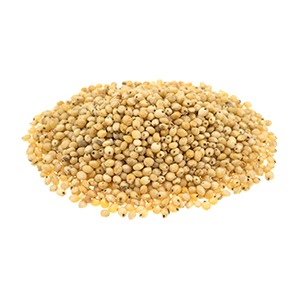Sorghum seeds, a versatile and nutritious grain, offer a plethora of health benefits owing to their rich nutritional profile. Sorghum is abundant in essential nutrients including protein, fiber, vitamins, and minerals, making it a valuable addition to a balanced diet. Its health benefits extend beyond mere sustenance, encompassing various aspects of well-being.
Firstly, sorghum seeds are a notable source of dietary fiber, which plays a crucial role in promoting digestive health. The soluble fiber content aids in regulating bowel movements and alleviating constipation, while insoluble fiber supports the prevention of digestive disorders such as diverticulitis. By fostering a healthy gut environment, sorghum contributes to overall gastrointestinal wellness.
Moreover, sorghum seeds possess significant antioxidant properties, attributed to their high content of phenolic compounds such as flavonoids and tannins. These antioxidants combat oxidative stress within the body, neutralizing harmful free radicals and reducing the risk of chronic diseases including cancer, cardiovascular ailments, and neurodegenerative conditions. Regular consumption of sorghum can thus contribute to long-term health maintenance and disease prevention.
Additionally, sorghum serves as an excellent source of energy due to its complex carbohydrates, which are gradually absorbed into the bloodstream, providing sustained energy levels and preventing spikes in blood sugar. This characteristic renders sorghum particularly beneficial for individuals managing diabetes or seeking to maintain stable energy throughout the day.
Furthermore, sorghum seeds offer notable benefits for immune system function. The grain is rich in essential vitamins and minerals, including vitamin E, zinc, and magnesium, which are integral to immune health. Vitamin E acts as a powerful antioxidant, supporting immune cell function and enhancing the body's ability to combat infections. Zinc plays a pivotal role in immune response, aiding in the production and activation of white blood cells that defend against pathogens. Additionally, magnesium contributes to immune function by regulating inflammation and promoting the synthesis of immune-related proteins.
In conclusion, sorghum seeds stand out as a nutritious and health-promoting grain, offering an array of benefits for overall well-being. From supporting digestive health and providing antioxidant protection to bolstering immune system function, sorghum constitutes a valuable component of a balanced diet, conducive to optimal health and vitality.
